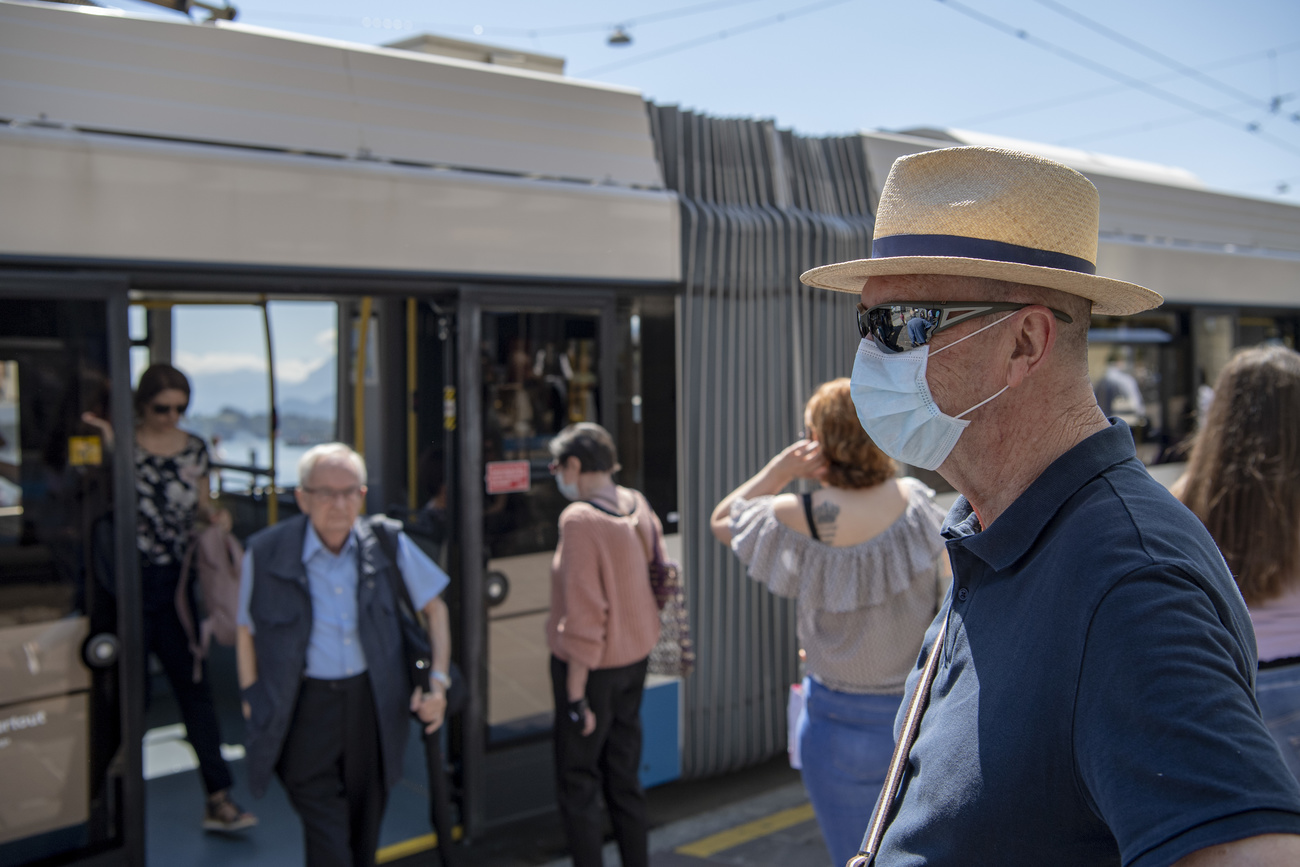
Mandatory face masks should not pose problems, says Swiss train boss

The obligation to wear a mask on trains from next Monday will not dissuade passengers from using the network, says Vincent Ducrot, the new head of Swiss Federal Railways (SBB/CFF).
This week the government announced that from July 6 all passengers using Swiss public transport will have to wear face masks. The decision is a response to the rising number of coronavirus infections and demands from cantons for such measures.
“We count on our clients being a bit more disciplined. It works in France and Germany so there is no reason for it not to work here in Switzerland,” Ducrot told reporters on July 3.
Switzerland, which has lifted many of its restrictions, has registered over 32,000 positive tests for Covid-19 so far, while 1,965 people have died. The number of infections has started to again increase in recent days, triggering concerns about a second wave.
The new mask requirement on public transport applies to everyone aged 12 or older. It will be in place in trains, trams, buses, mountain railways, cable cars and boats. The Swiss Federal Railways said conductors will ask anyone not wearing a mask to leave the train and anyone refusing will be fined.
Until now, the recommendation was to wear a mask during rush hour on public transport, or when the 1.5 metre social distancing could not be maintained. However, only about 5% of passengers in trains have been wearing masks, even in crowded trains. A recent survey nonetheless showed that 74% of people wanted to make face masks mandatory on public transport.

More
Masks declared obligatory on Swiss public transport
Worrying finances
Ducrot told reporters at Friday’s press conference that around 60-70% of rail passengers had returned after the coronavirus lockdown. But he warned that the national network faces a “very serious” financial situation, without detailing the damage caused by the pandemic that resulted in empty trains and cancelations over several months.
In a recent Sunday newspaper report, Alliance SwissPass, the national public transport organisation, said it expected a drop in the number of local train and bus passes and individual train and bus tickets this year to result in an overall loss of CHF1.5-1.8 billion ($1.6-1.9 billion) in turnover.
To help the railways cope, the government recently extended the loan limit for the operator from CHF200 million to CHF750 million. The proposal is now available for consultation until July 22.
Despite the worrying financial situation, Ducrot said there would be no impact on the future prices of train tickets or passes.
During the press conference, which marks 100 days since Ducrot took over as head of the federal railways, he also promised improvements to train punctuality and new innovations on the network, such as real-time information on occupancy levels.

More
Coronavirus: the situation in Switzerland

In compliance with the JTI standards
More: SWI swissinfo.ch certified by the Journalism Trust Initiative




























You can find an overview of ongoing debates with our journalists here . Please join us!
If you want to start a conversation about a topic raised in this article or want to report factual errors, email us at english@swissinfo.ch.